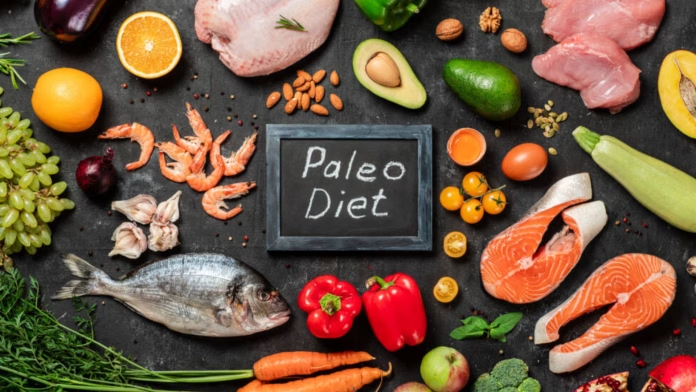The paleo diet, also known as the caveman diet or the hunter-gatherer diet, is a dietary pattern that seeks to emulate the types of foods that were believed to have been consumed by our ancient ancestors during the Paleolithic era.
This involves consuming foods that are whole, unprocessed, and nutrient-dense, such as lean meats, fish, fruits, vegetables, nuts, and seeds, while avoiding processed foods, grains, dairy, and legumes.
The paleo diet is a sustainable and environmentally-friendly diet that emphasizes the consumption of whole foods and minimizes the consumption of processed foods, making it a healthy and practical dietary pattern for individuals looking to improve their overall health and reduce their risk of chronic diseases.
Health Benefits of Paleo Diet:
The paleo diet has gained popularity in recent years due to its potential health benefits.
When it comes to losing weight, the paleo diet is rich in protein and healthy fats, which can increase satiety and reduce hunger, leading to a reduced caloric intake and weight loss.
The paleo diet eliminates refined carbohydrates and sugars, which can lead to spikes in blood sugar levels. By promoting the consumption of whole, unprocessed foods, the paleo diet can improve blood sugar control and reduce the risk of type 2 diabetes and emphasizes the consumption of foods that are high in omega-3 fatty acids and antioxidants, which can help reduce inflammation in the body. This can lead to a reduced risk of chronic diseases, such as heart disease and cancer.
This diet promotes the consumption of fiber-rich fruits and vegetables, which can help improve gut health by promoting the growth of healthy gut bacteria. This can improve digestion and reduce the risk of digestive disorders.
Apart from that diet eliminates processed foods and sugars, which are linked to chronic diseases, such as heart disease and cancer. By promoting the consumption of whole, unprocessed foods, the paleo diet can reduce the risk of chronic diseases.
The paleo diet emphasizes the consumption of nutrient-dense foods, such as fruits, vegetables, nuts, and seeds, which can provide a wide range of vitamins, minerals, and antioxidants.
How does this diet help with Cholesterol:
The paleo diet promotes the consumption of lean meats and fish, which are high in protein and healthy fats. These foods can help increase HDL cholesterol, the “good” cholesterol that helps remove LDL cholesterol, the “bad” cholesterol, from the bloodstream. By increasing HDL cholesterol and decreasing LDL cholesterol, the paleo diet can help reduce the risk of heart disease and stroke.
The paleo diet eliminates processed foods and sugars, which can lead to elevated levels of triglycerides, a type of fat found in the bloodstream. High levels of triglycerides are often associated with low levels of HDL cholesterol and increased risk of heart disease. By eliminating processed foods and sugars, the paleo diet can reduce triglyceride levels and improve overall cholesterol levels.
Moreover, the paleo diet emphasizes the consumption of fiber-rich fruits and vegetables, which can help improve cholesterol levels by promoting the excretion of cholesterol from the body. Fiber can bind to cholesterol in the digestive tract and help remove it from the body, reducing cholesterol levels in the bloodstream.
By improving cholesterol levels, the paleo diet can reduce the risk of heart disease and stroke.
Who should adopt a paleo diet?
The paleo diet can be a good option for anyone who wants to improve their overall health and well-being, particularly those who want to lose weight or reduce the risk of chronic diseases such as heart disease, diabetes, and cancer.
Additionally, the paleo diet may be particularly beneficial for people with certain health conditions, such as autoimmune disorders or digestive issues. The elimination of processed foods and sugars, as well as the emphasis on whole, unprocessed foods, can help reduce inflammation and improve digestive health.
However, it is important to note that the paleo diet may not be suitable for everyone. People with certain medical conditions, such as kidney disease, may need to modify the diet to meet their specific nutritional needs. Additionally, pregnant or breastfeeding women and children should consult a healthcare professional before adopting the paleo diet.
The paleo diet can be a healthy and effective way to improve overall health and reduce the risk of chronic diseases. However, it is important to consult a healthcare professional before making any significant dietary changes, especially if you have any underlying health conditions or concerns.





